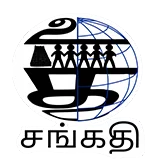
Civil society grouping Direction Sri Lanka has said that the country required an Independent National Planning Commission.
The following is the text of a statement issued by Direction Sri Lanka: “It is the considered position of Direction Sri Lanka that the neglect of evidence-based national planning in the Country now for over four decades has resulted in a highly distorted, imbalanced and unsustainable economy, leading to the collapse of many industries established after independence, compounded by social polarisation in the key social sectors such as Education, Transportation and Health. As apposite illustrations; • A fairly equitable system of education gave way to an unequal system of education where the well to do moved away their children from public education to private education dominated by private and public schools; • A mostly public transportation system gave way to a polarised system dominated by private vehicles which in turn contributed to a deterioration of public transport services in the Country; These and other changes encouraged many people in all parts of the Country to look for wage employment abroad, particularly in oil-rich Middle Eastern countries. With a widening of the trade gap due to rapidly increasing industrial imports, labour migration soon then became the leading exchange earner for the Country.
Labour migration post – 1977 resulted in labour shortages in vital sectors like agriculture forcing many small holding farmers to abandon labour intensive crop production in rural areas. Large numbers of school leavers also migrated to urban areas as informal sector workers, construction workers and three – wheeler drivers. Meanwhile, the importation of cheap substitutes for local products from many rural industries, eventually led to a decline of these industries. People engaged in such rural production activities eventually moved into other economic pursuits in urban areas. All of the above developments contributed to the loss of the rural – urban balance in population distribution, leading to increasing urbanisation, particularly in the Western Province. Many people migrated to this region not only for earning higher incomes but also to enjoy better amenities and services. Another significant development under post-1977 neo-liberal reforms was the compounding problem of public finance due to low tax regimes that were introduced. State revenue that was as high as 40% of GDP in the early 1970’s came down to about 12% of GDP, making it impossible to maintain a high level of public investment in critical areas such as education, health and public transport. The response of the governments at the time was to invite private sector investment. These investors established private hospitals, international schools and imported all types of vehicles for private transport and the roads were quickly filled with cars and other private vehicles. The rich and the other higher income generators began to use private services, while the poor had to manage with underfunded public services. Meanwhile, there was no diversification of export industries and the foreign income of the Country came from a few exports such as garments and tea. This was grossly inadequate to pay for the rapidly increasing import bill.
The easiest thing for successive governments at the time was to promote the export of labour. Foreign remittances from workers in the Middle East became the largest single exchange earner, reaching about USD 7.5 Billion and covered about 70% of the trade deficit. Tourism was identified as the next foreign exchange earner, reaching approximately USD 5 Billion at its peak. What was worse came soon thereafter, which was borrowing money from foreign sources to invest in projects, several of which subsequently became ‘white elephants’, not generating any return for the investment but adding to the rapidly growing foreign debt burden. With the onset of the pandemic in 2020 and traditional foreign inflows substantially declining, the situation aggravated to where the Government could not even pay for essential imports. To compound matters, the Government of President Gotabaya Rajapaksa made several policy blunders including the ban on fertiliser imports and drastic reduction of income taxes. As is now well understood, it is the developments outlined above that eventually prepared the ground for the unprecedented economic crisis that Sri Lanka is presently facing. What is clear from the above is that it has been due to a series of public policy failures and the mismanagement of economic and social affairs of the Country for over four decades that led to the present crisis. It is the considered view of Direction Sri Lanka that the absence of a well constituted policy planning body to provide guidance (like the National Planning Council that existed up until 1977 which accommodated the best brains in the relevant fields) and the resultant lack of policy coherence across sectors paved the way for a highly distorted, imbalanced and unsustainable economy and society in Sri Lanka.
In such a context, political leaders and their cronies drawn from their own political circles continued to mismanage the economy and the social sectors leading to the present disastrous situation in the Country. It is in these attendant circumstances that Direction Sri Lanka identifies the urgent need to establish an independent National Planning Commission with necessary legal sanction and adequate empowerment as soon as possible in order to take control over the national policy making process and come up with a recovery plan based on the best evidence available and through objective and unbiased decision making. Direction Sri Lanka calls upon the President, the Government, the Opposition and all Political Parties represented in Parliament to champion the cause of setting up an Independent National Planning Commission (with necessary legal sanction and adequate empowerment) that would be the apex authority in formulating and presenting national policies that would run across all governments and the political divide for a designated period of time.

